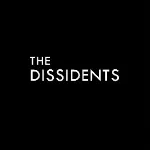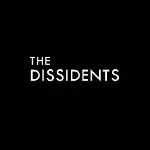
The Autumnal Glow of Not Knowing: On François Ozon’s “Quand vient l'automne”
There is a tension that pulses through the films of François Ozon, a career-long oscillation between the tangible and the ethereal, the precisely rendered surface and the unknowable depths beneath. His latest, Quand vient l'automne (When Autumn Comes), is a masterful culmination of this thematic obsession, a film that rejects the comfort of conclusions to instead hail uncertainty as the world’s natural, and perhaps most humane state. It is a work of profound quietude and warmth, finding in the ambiguity of its central drama not a source of painful anxiety, but a fragile, peculiar glow, much like the season of its title.
The film, which Ozon based on a disquieting story from his own family history, begins with deceptive simplicity. In a quaint Burgundy village, Michelle (a transcendent Hélène Vincent) lives in peaceful retirement, her days marked by tending her vegetable garden and sharing confidences with her best friend, Marie-Claude (Josiane Balasko). This gentle rhythm is shattered when her visiting daughter, Valérie (Ludivine Sagnier), falls violently ill after eating a dish Michelle prepared. The incident, born from a mushroom-picking trip with Marie-Claude, rips open latent familial wounds. Valérie accuses her mother of a deliberate act of malice, severing contact and leaving Michelle in a state of quiet devastation.
Where another film—perhaps even a different Ozon film from another era—might pivot into a taut psychological thriller or a forensic investigation of guilt, Quand vient l'automne takes a more contemplative path. It shares a thematic space with a recent masterpiece of ambiguity, Anatomy of a Fall, yet it travels further into the wilderness of the unknown. Justine Triet’s film, for all its brilliance in questioning narrative truth, is still structured around the procedural demand for a verdict. It is a dialectic of doubt played out in a courtroom. Ozon, however, seems to have moved past the need for even a judicial illusion of reality. His film is not about the search for truth but the acceptance of its absence. As one critic noted, Ozon creates a mystery without a resolution, and this becomes the film's greatest quality. The question of whether the poisoning was accidental or intentional is allowed to hang in the air, unanswered and ultimately, secondary.

This is achieved through a cinematic language of hesitation and observation. Ozon’s camera captures fragments—the fleeting expressions on Hélène Vincent’s face, which can shift from grandmotherly tenderness to a disquieting blankness in an instant; the unspoken tensions in a shared meal; the rust-colored leaves and shifting Burgundy skies that seem to hold their own secrets. The narrative is built not from a linear chain of events but from these scraps of life, these suspended moments that refuse to coalesce into a clear trajectory. The focus shifts from the initial drama to the aftershocks: Michelle’s burgeoning, the complex relationship with Marie-Claude’s son (Pierre Lottin), recently released from prison, and her quiet fight to maintain a connection with the grandson she adores. The film suggests that the atmosphere surrounding the enigma—the texture of time, silence, and gesture—is more significant than the solution itself.
This represents a fascinating evolution for Ozon, a director whose prolific and genre-hopping career has always been a playful, intelligent dialogue with the nature of storytelling itself. His early works, like the camp-theatrical 8 Women or the sun-drenched, meta-textual Swimming Pool, treated mystery as a seductive artifice, a puzzle box to be admired for its construction. Later, films like the starkly beautiful Frantz or the urgent, fact-based By the Grace of God engaged with truth and lies on a more dramatic and socially immediate level. Quand vient l'automne feels like a synthesis of these sensibilities. It has the intimate, Chabrol-esque mystery of his earlier thrillers but is stripped of their stylistic bravado. It possesses the mature, patient humanism of his later dramas but turns that gaze inward, away from societal structures and toward the quiet, interior spaces of a single life. In an interview, Ozon himself noted his desire to move from the theatricality of his previous film, Mon Crime, to something more naturalistic, to make a film that moved at the pace of its elderly heroines, heroines who are more complex than their "sweet grandmother" images.
The result is not a film that is sorrowful or bleak. Instead, it uncovers a strange and unexpected warmth. The reality it depicts is not tragic but suffused with a vulnerable luminescence. The title is key. Autumn is a season of transition and decay, of things falling away, but it is also a time of mellow beauty and a soft, forgiving light. The film’s emotional landscape mirrors this perfectly. Michelle, a woman in the autumn of her life, is stripped of her daughter’s trust and her role as the perfect matriarch. Yet, in this state of suspension, something else is found. It is a quiet resilience, a focus on the present—her garden, her friend, her grandson—that exists outside the grand, unanswerable questions of guilt and intention.
Quand vient l'automne is not a film that provides the catharsis of a revealed truth. It is an experience to be inhabited, an atmosphere to be absorbed. It is a work that asks us to sit with uncertainty, not as a procedural tool or a source of suspense, but as a fundamental condition of existence. In doing so, Ozon has crafted one of his most subtle and profoundly moving films, one that suggests the most potent truths are not found in definitive answers, but in the fragile, enduring warmth of simply carrying on.

wirtten by Sharon
THE DISSIDENTS are a collective of cinephiles dedicated to articulate our perspectives on cinema through writing and other means. We believe that the assessments of films should be determined by individuals instead of academic institutions. We prioritize powerful statements over impartial viewpoints, and the responsibility to criticize over the right to praise. We do not acknowledge the hierarchy between appreciators and creators or between enthusiasts and insiders. We must define and defend our own cinema. |



























Share your thoughts!
Be the first to start the conversation.